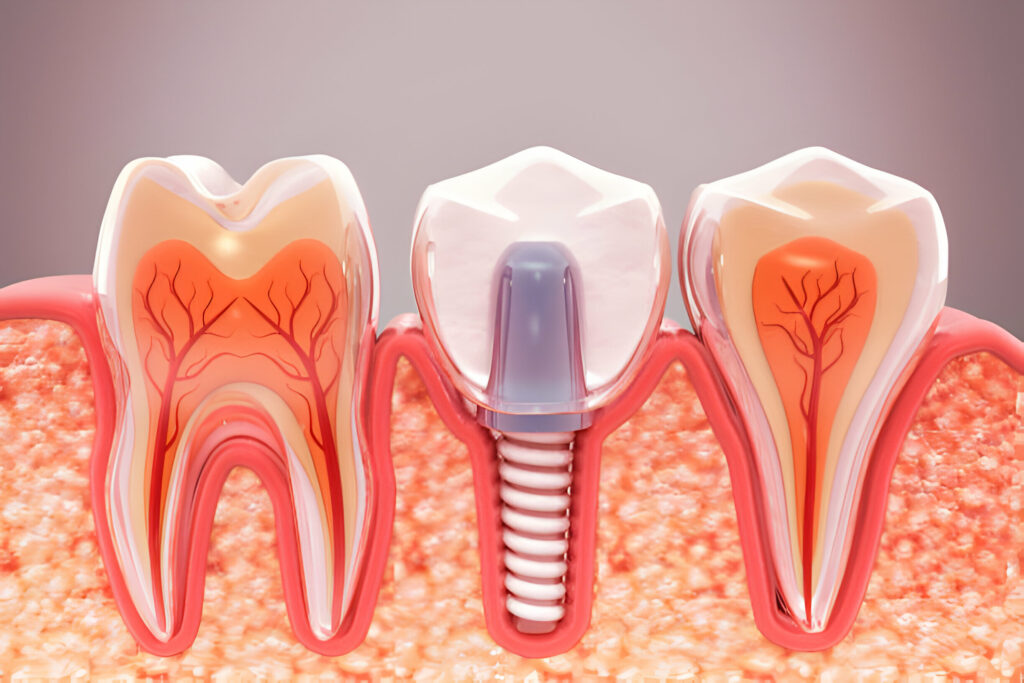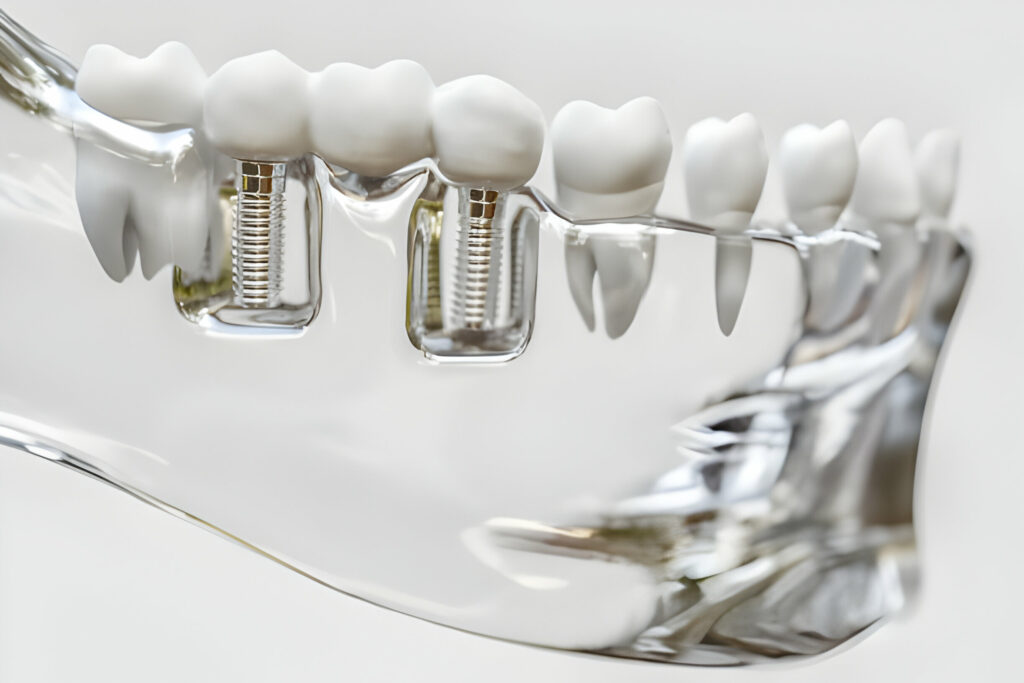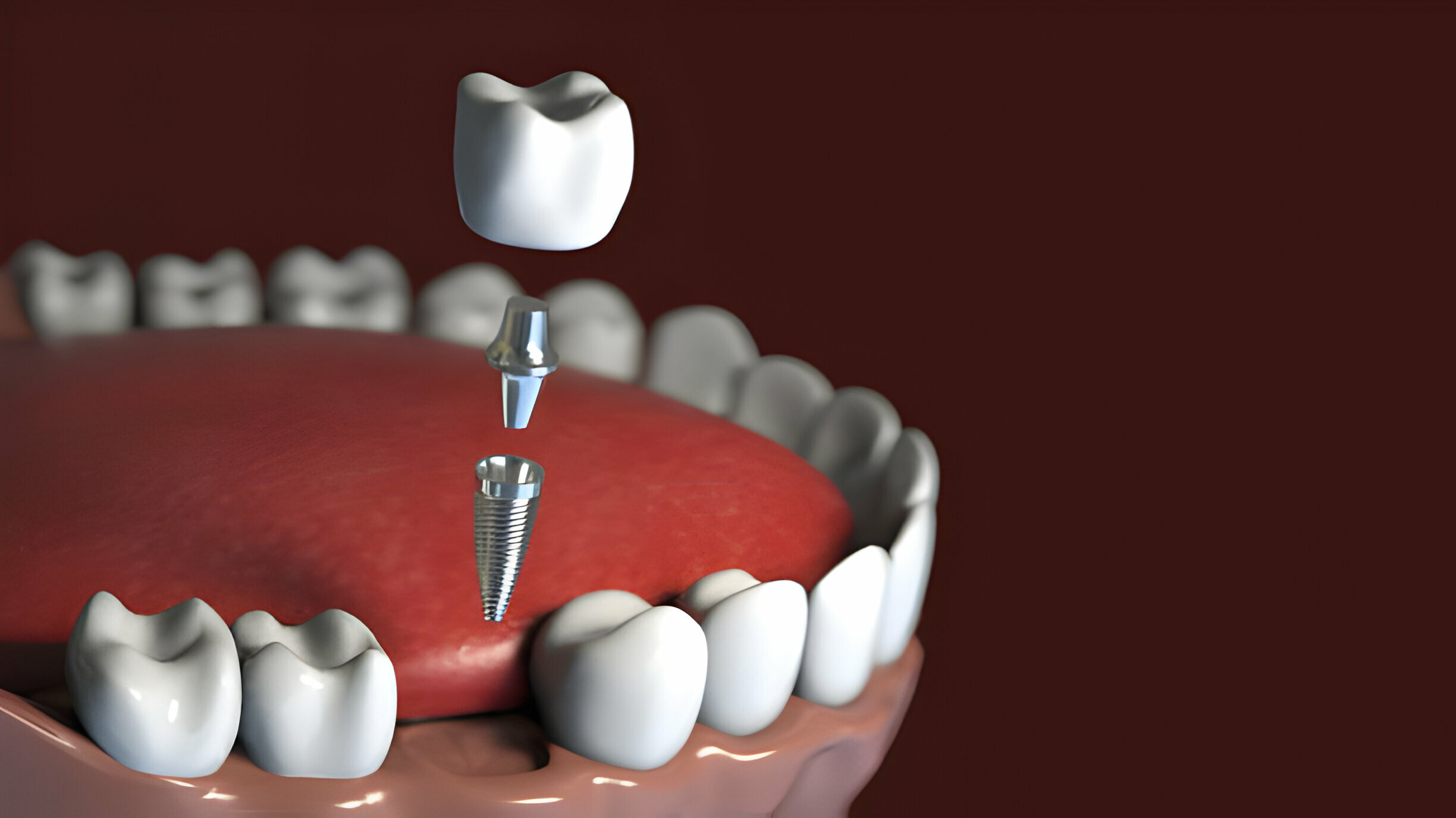Summary:
Do you want a natural-looking and long-lasting replacement for your missing teeth?
If so, consider dental implants!
Dental implants are the ideal replacement option for individuals who require solid and permanent alternatives to their missing teeth. Thanks to their 98% success rate and wide variety of options, many dentists consider implants the golden standard in restorative dentistry.
However, getting implants isn’t straightforward. The different types of implants tend to confuse individuals about the treatment.

Keeping the same in mind, this blog explores more about the different types of implants via topics like:
- Dental Implants – An Overview
- Different Types of Dental Implants
- Several Advantages of Getting the Right Implants
- Are You A Candidate for Dental Implants?
- Risks Involved with Dental Implants
Continue reading as we learn more about these appliances in the following sections.
Dental Implants – An Overview
Dental implants are the ideal option for replacing lost or damaged teeth. These dental prosthetics are robust (created using titanium) and are mostly designed as a permanent option for lost teeth.
These appliances are inserted directly into the jawbone as an artificial toothache. A dental bridge or crown can be placed on the implant, resulting in an artificial tooth that looks and feels like your original teeth.
How Does the Appliance Work?
Dental implants function by merging with bone in your upper or lower jaw. This process is known as osseointegration and often takes many months to complete.
When the implant integrates with your jawbone, it provides a strong foundation for the new tooth. Unlike dentures or other detachable dental devices, dental implants are permanently attached and do not require any particular maintenance or cleaning.
Now that we understand how implants work, let’s review the different types in the next section.
Different Types of Dental Implants
Endosteal Implants
Endosteal implants are the most popular form of single dental implant nowadays. It is surgically implanted into the jawbone and fused with it over time, forming a solid foundation.
Endosteal implants can be created using various materials, including titanium and zirconia. They are also available in different forms and sizes to suit mouth architecture and tooth replacement requirements.
Subperiosteal Implants
Subperiosteal implants are less prevalent than endosteal ones. Nonetheless, they may be a viable alternative for those who lack sufficient jawbone density to sustain endosteal implants.
These implants are implanted on top of the bone beneath the gum tissue rather than into the lower or upper jaw. They are secured in place using a post or a metal implant screw that attaches the implant to the bone. Subperiosteal implants can be used to replace one or many teeth.
All-on-4 Implants
All-on-4 implants are a groundbreaking development in implant dentistry. They restore lost teeth in a single arch using just four dental implants. The surgery necessitates substantial preparation since the implants must be properly positioned for the best support.
The posterior implants are positioned at a 45-degree angle to maximize accessible bone. All-on-4 is suitable for individuals with many missing teeth since it delivers a whole arch of permanent, natural-looking replacements.

Zygomatic Implants
This type of single-tooth implant is suitable for individuals with insufficient jawbone bone density to support typical endosteal or subperiosteal implants. The zygoma is a facial bone found under the eye.
The zygomatic implant post is attached to the zygoma, forming a solid basis for the prosthetic tooth. Zygomatic implants need more intrusive surgery and are usually reserved for individuals with extremely low bone density.
Other Types of Dental Implants
In addition to those listed, various types of dental implants are available. These include tiny dental implants, smaller than regular implants, and can be utilized for smaller teeth or in regions where a bigger implant would be too big.
Another form is an implant-retained denture, which is more durable than ordinary dentures. Your dentist can advise you on the best dental implant procedure for your circumstances.
Several Advantages of Getting the Right Implants
Based on your implants, you’ll witness several advantages of your treatment, namely:
1 Natural look and comfortable fit
Dental implants are intended to appear, feel, and operate like natural teeth. They also allow patients the confidence to smile, eat, and participate in social events without being concerned about their appearance or if their dentures may fall out.
2 Long-lasting and reliable
Stats suggest that implants last 10-25 years under ideal conditions. Dentists for dental Implant in Mississippi suggest that with proper care and maintenance, implants may last as long as traditional tooth restorations and produce consistent results.
3 High success rate
Well-planned and cared-for dental implants often have survival rates equivalent to or better than other tooth replacement choices. As implant technology and methods advance, so will their success rate. People in good health have the highest chances of a successful implant.
4 Improved ability to eat and chew
Dental implants, like natural teeth, are fixed in the jawbone. Over time, they will help protect the jawbone and considerably prevent bone resorption. Implant-replacement of lost teeth improves chewing and speaking ability.
5 Improved facial and bone features
Dental implants protect native tooth tissue by eliminating the need to trim neighboring teeth for traditional bridgework. They also retain bone and dramatically prevent bone resorption and degeneration, decreasing jawbone height.
Dental implants also aid in repairing jawbone structure by lowering the stress on the remaining oral structures/teeth, conserving natural tooth tissue, and slowing bone resorption and degeneration, which causes jawbone height reduction.
Are You A Candidate for Dental Implants?
Tooth implants might be an effective remedy for tooth disease or missing teeth. However, it is essential to remember that they are only sometimes the best fit for everyone. Schedule a consultation with your dentist in Mississippi to establish whether you are a suitable candidate.
During the consultation, they will check your teeth and gums and the thickness and density of your jaw bone. This assessment will help you decide if dental implants are the best option.
Risks Involved with Dental Implants
Dental implants can improve your quality of life but come with hazards like any other medical surgery. Many people ask if dental implants are uncomfortable because they require substantial surgery.
Here are the significant risks of dental implants and what you should know:
Infection
One of the most prevalent concerns linked with dental implants is infection. If adequate cleaning is not maintained during or after surgery, the implant may develop an infection known as peri-implantitis.
Before obtaining a dental implant, you should have a complete checkup by your dentist to see whether you are prone to gum disease or other health issues that might lead to infection.

Implant Failure
Although dental implant procedures have a high success rate, they can fail. Implant failure can occur for a variety of causes, such as inadequate bone density, low-quality dental implants, or inappropriate implantation.
Dental implant failure may not be immediately evident and may take weeks or months to develop. Contact your dentist immediately if you experience tenderness, swelling, or pain around the implant area.
Takeaway
- Dental implants are the ideal replacement option for individuals who require strong, permanent alternatives to their missing teeth.
- Endosteal implants are the most popular form of single dental implant nowadays.
- Subperiosteal implants are less prevalent than endosteal ones
- Dental implant failure may not be immediately evident and may take weeks or months to develop.
- Are you confused about which Invisalign treatment is best for you? Contact our experts at Rowan Family Dentistry for further clarification today!

